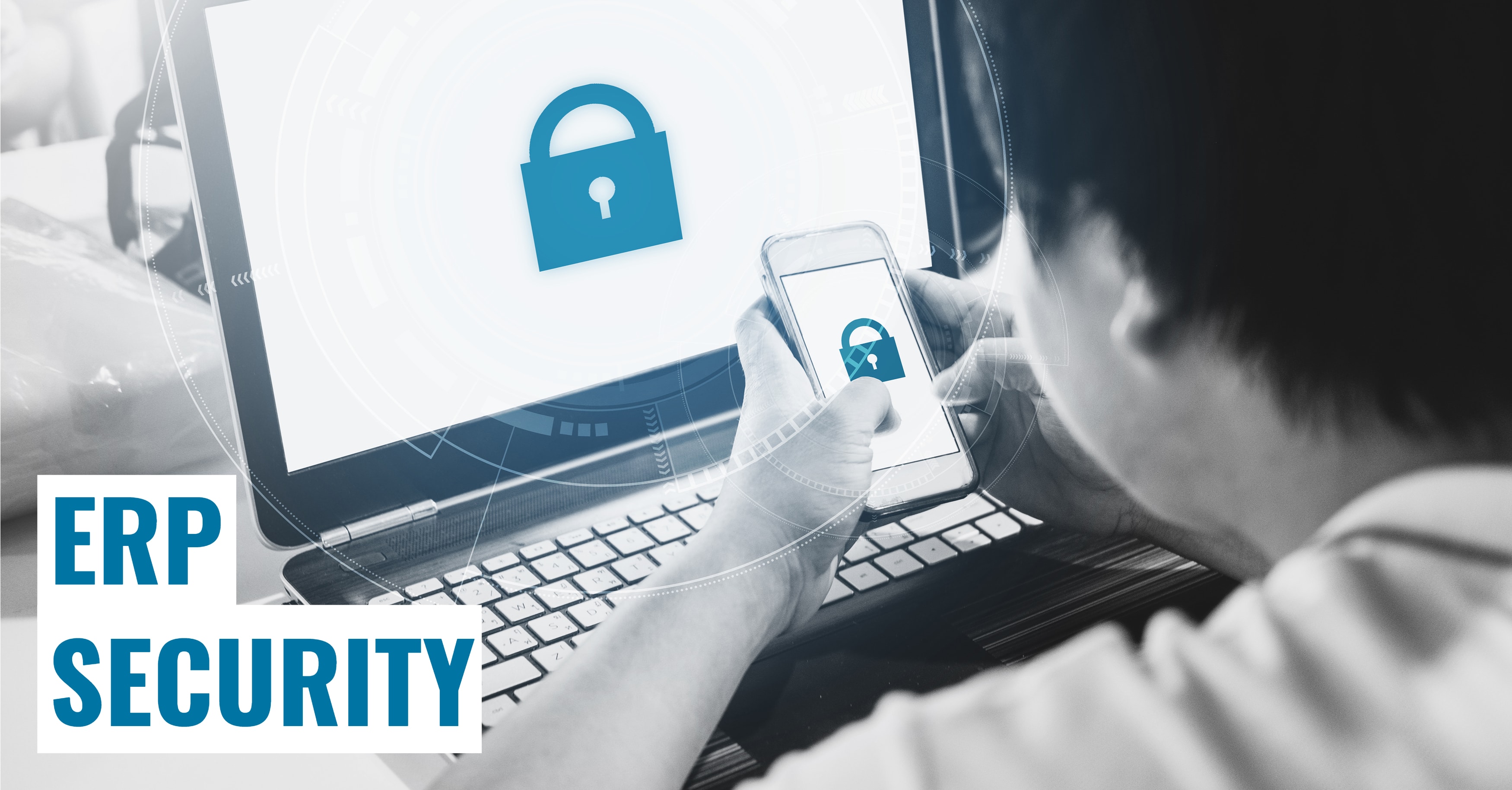
Tips to Ensure ERP Security
Your ERP system is integral to your business, controlling a huge amount of your company data and processes. This level of control can make security risks all the more frightening. Though ERP software is designed with rigid security protocols, the truth is that no system or dataset is 100 percent safe.
It pretty much goes without saying that it’s important you take extra care in the ERP implementation process to mitigate the most common security risks, like poor data, mishandled communication and porous security barriers. Here are four steps you must take during your ERP implementation to help you breathe easier every time you use ERP.
Procure a Secure Hosting Space
Whether you choose to host your ERP in the cloud or in on-site servers, one of your company’s first priorities should always be a secure location for your company data and processes. For an on-premises deployment, that means dedicating some of your tech team to building strong protections around your system. For cloud users, this burden will be passed onto your vendor.
The idea of hosting your ERP on an online public cloud might seem counterintuitive to your data security, but it shouldn’t. The fact is that cloud vendors are more equipped to focus on data security. They host ERP instances on their servers in bulk, meaning they have the resources and employees to dedicate full time to keeping your data secure. If you’re worried about being able to dedicate enough time and money to your ERP security, then cloud ERP might actually be the best option for you.
Reduce External Systems
The purpose of an ERP system is to serve as an all-encompassing software solution—not just another application on a long list. If you implement a new ERP but are still relying on a bunch of other applications (QuickBooks, Excel, etc.), you’re putting information at risk of becoming corrupted or lost. If you’re committing to ERP, your business should try to commit all the way.
Don’t fall back on legacy platforms just because they’re familiar. Map all your processes onto the new, more efficient software. That way, your business will have a single source of truth, stronger and more secure because data has been pooled in one place. If you have certain processes that currently need to take place outside your ERP system, it might be worth looking into software customization or integration to accommodate those tasks.
Limit Data Access
Just because your ERP system will affect everyone inside your business doesn’t mean every person should have full access to all information and controls. For example, your sales team will want to be able to see inventory and make quotes that can get sent directly to the shop floor, but they shouldn’t be able to change production line data directly. Conversely, employees outside of sales don’t need to know contact information or proprietary details about your clients.
During implementation, it’s important to construct a set of rules and checkpoints that will limit access for specific employees to only the data they need to see. You can work with your implementation partner to create limited dashboards or password-protected areas, but it’s vital that you create barriers for employees and know how they will be interacting with the system.
Set Up an Update Schedule
Running legacy versions of ERP software can invite vulnerabilities and errors into your company data. Aside from slow and aging software being more prone to mishandle data, old versions of ERP are likely to be more vulnerable to viruses, hackers and malware. One of the primary purpose of updates is to fix bugs and patch security holes in the system.
Yes, upgrading or updating old versions of an enterprise software can be a hassle, especially with an on-premises solution. Perhaps your company is putting it off because there will be downtime to install the update, or you are happy with your current version and don’t see the need to spend time training your users on new features. However, this attempt to save time will be for naught when you have a significant data breach and have to spend even more of your time and money fixing the problem—then probably updating or upgrading in the end anyway.
It’s important to note that this security risk can be alleviated if you are running on cloud ERP, as your platform vendor will automatically roll out and install updates as they become available in the cloud rather than making you responsible for updating your own servers.
Wrap Up
Want to mitigate potential security risks in your ERP implementation? Worried about data on your current instance? Get in touch with an expert consultant at Datix today to protect your software investment. A certified Epicor partner, we can help you at any stage of your ERP journey. Take advantage of our comprehensive software solutions and services to become a more secure, productive enterprise.
{{cta(‘770c1544-d87d-4acb-9fc4-7a25e1385094′,’justifycenter’)}}

